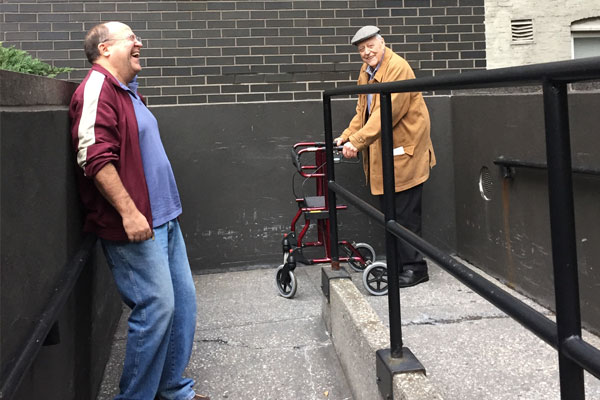Transition Services

Whether your loved one is moving from the hospital back home, from a hospital to a rehab facility or from home to a senior living community, we can help make the transition as easy as possible.
If the time has come for your loved one to move into a senior living community, we provide the following:
- Recommendations for the communities in the area that best suit your loved one’s specific needs
- Accompanying the client at admission to ensure that the staff has the proper medical documentation and health history, dietary preferences, and knows of the client’s unique emotional needs by meeting with social worker
- Ensuring the staff has advanced directives documents (Health Care Proxy and Living Will) and knows who to contact knows in case of an emergency
If your loved one needs to enter a rehabilitation facility, we will:
- Work with various staff (physical/occupational therapist, speech and swallowing practitioner, social worker, recreational therapist, doctors and nurses) to ensure optimal delivery of care during the client’s stay.
- Attend meetings regarding the client’s care and progress and advocate for the client at those meetings.
- Help client and family members with insurance issues should certain therapies be terminated as per Medicare rules despite needing continued therapy.
- Coordinate with the social worker an appropriate discharge plan to return home and/or to a long-term care facility.
If your loved one is returning home after a stay in the hospital or rehabilitation facility, we:
- Work with the social worker to create a safe discharge plan which includes a referral to a home care agency and any durable medical equipment (DME) prescribed by the doctor which is needed at home.
- Ensure that the home is safe and that the client has the support in place to accommodate his/her health needs by removing immediate fall risks, installing safety supports in the bathroom and any living spaces, and making it easier for client to navigate at home.
- Making sure the client is safe during first 24 hours prior to the post-discharge support begin implemented.
- Ensure that all discharge papers, prescriptions, determined services for post-discharge are in place, including transportation, and appropriate coverage by trained caregivers for client.
- Make necessary referrals to community services, geriatricians, home health aides and supply providers.
![Aging With Dignity NY LLC [logo]](https://www.agingwithdignitynewyork.com/wp-content/uploads/sites/217/2018/09/master-logo-NEW.png)

